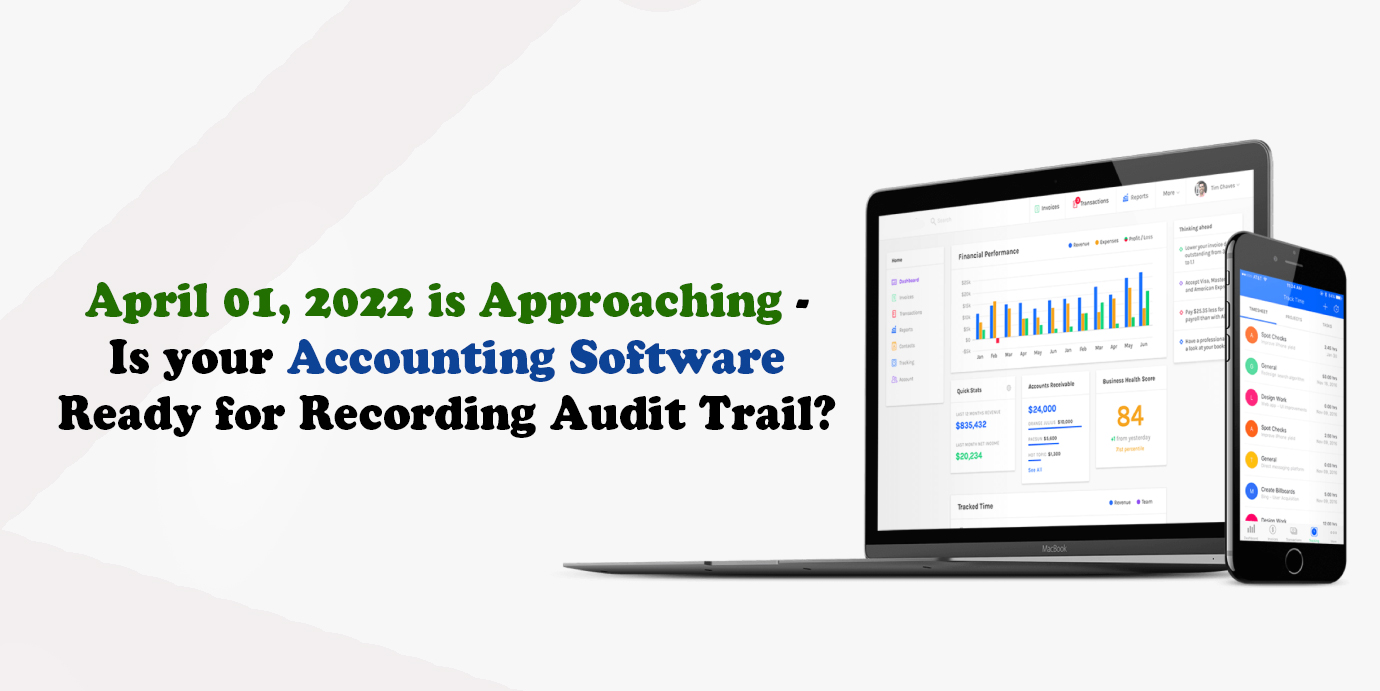The Ministry of Corporate Affairs (MCA), with an objective of curbing backdated entries in the books of accounts of the companies, had issued a notification last year on 24th March 2021 notifying Companies (Accounts) Amendment Rules, 2021. It says, “for financial year commencing on or after 1st April 2021, every company which uses accounting software for maintaining its books of account shall use only such accounting software which has a feature of recording audit trail of each and every transaction, creating an edit log of each change made in the books of account along with the date when such change was made and ensuring that the audit trail cannot be disabled.”
Thereafter, on 1st April 2021, MCA issued another notification to amend the effective date for implementing this change by another one year. This means, for financial year commencing on or after 1st Aril 2022, you must keep your Accounting Software ready with the feature of recording Audit Trail.
Difficulties and Concerns
These amendments reflect an appreciable intent of the government to bring in more transparency and improve compliance. Although at a conceptual and regulatory level, the requirement of audit trail is very important and apt, there were few concerns that many associations, trade and industry bodies observed and have raised with the ministry. These concerns emanated with respect to the operational areas of businesses and were highlighted to the ministry via representations made by these bodies:
- While the audit trail aims to track, penalize and discourage fraudulent changes in the accounting entries, it is important to note that there is an aspect of ‘human typing error’ involved in this subject. Such error may get recorded in the audit trail and lead to unnecessary difficulty for both the auditor and the business in question. Any model which relies on tax officers’ intervention and increases the burden on businesses is likely to fail.
- The law mandates that the business use software which is audit trail compliant, the expectation from the Business owners is that they endorse and undertake to the government that the businesses are audit trail compliant. However, with the current ambiguity in the exact description and scope of Audit Trail, such undertaking would be difficult to give.
The regulation needs to address these in the right manner so that businesses are not affected or penalized for things like lack of technical expertise, lack of clear understanding, etc. Also, business owner/ auditor cannot be expected to be technologically enabled to detect hacking or tampering of the application.
Current Situation and the Way Forward
Post the deferment of Audit Trail to 1st April, 2022, many trade associations along with software service providers have been constantly interacting and working with the ministry to bring out a detailed version of the amendment. The solution providers have designed and shaped accounting platforms for businesses as per their requirements for a successful functioning of the edit log. Time will tell whether such software proves to be flexible enough to meet the requirements of varied business segments, across various levels and fulfill the security and speed parameters.
Checkpoints to ensure appropriate accounting software capability:
To handle the edit log requirements notified by the MCA, kindly ensure your accounting application is ready with the following capabilities:
- Tracking of the edits for masters and every transaction
- Capturing the date, details and username when such changes (edits) are made
- Generating Different reports to show the elements of the version that have been modified
- Generating Reports that provide filter option to review the edited transactions
- Ensuring that the accounting application does not allow disabling of the edit log feature, once enabled as per the guidelines issued by the MCA.
Though this regulatory requirement is introduced to curtail the backdated entries in books of account which is a good step forward from compliance and governance perspective, we believe implementation of this requirement could be still challenging for the major population of businesses in India which consists of SMEs and small business houses that maintain books of account on local accounting systems and not on ERPs. We hope and expect the MCA to either extend the effective date further giving more time to the businesses to prepare themselves or provide certain relaxations on its applicability.





